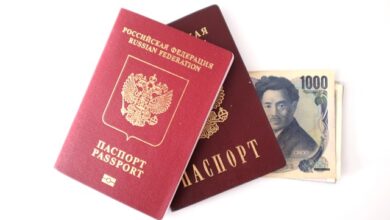French Dual Citizenship: Rules and Advantages

Dual citizenship, or holding citizenship in two countries simultaneously, is a concept that many people find appealing due to the increased mobility, cultural connections, and legal benefits it offers. France is one of the countries that allows dual (or even multiple) citizenship, making it an attractive option for those with French heritage, long-term residents, or individuals seeking to deepen their ties to the country. Below, we’ll explore the rules, requirements, and advantages of obtaining French dual citizenship.
1. Understanding French Dual Citizenship
France recognizes and permits dual citizenship, meaning you can hold French nationality alongside another nationality without being required to renounce your original citizenship. This policy reflects France’s inclusive approach to immigration and integration, allowing individuals to maintain strong ties to both their home country and France.
Key Points :
- You do not need to give up your current citizenship to become French.
- France does not impose restrictions on dual citizens regarding travel, voting, or other rights.
- However, your home country’s laws may affect whether you can retain your original citizenship while acquiring French nationality.
2. Ways to Obtain French Citizenship
There are several pathways to acquiring French citizenship, each with its own set of requirements:
A. By Descent (Jus Sanguinis)
If at least one of your parents is French, you may automatically qualify for French citizenship, regardless of where you were born. This principle, known as jus sanguinis (right of blood), prioritizes familial ties over birthplace.
- Requirements :
- Provide proof of your parent’s French citizenship (e.g., birth certificates, passports).
- If your French parent was born abroad, ensure they maintained their French nationality by registering with the French consulate.
B. By Birth (Jus Soli)
France also grants citizenship based on jus soli (right of soil) under specific conditions:
- If you were born in France to foreign parents and have lived there continuously for at least five years after turning 18, you can apply for citizenship.
- Children born in France to stateless or unknown parents are automatically granted French citizenship.
C. Through Marriage
Marrying a French citizen can expedite the naturalization process, though it does not grant automatic citizenship.
- Requirements :
- Be married to a French citizen for at least four years.
- Demonstrate knowledge of the French language (B1 level or higher).
- Prove integration into French society (e.g., stable employment, community involvement).
D. By Naturalization
Foreigners who have legally resided in France for a significant period may apply for citizenship through naturalization.
- Residency Requirements :
- Five years of continuous legal residence in France (reduced to two years for certain cases, such as graduates of French universities or individuals with exceptional merit).
- Additional Criteria :
- Pass a French language test (B1 level).
- Show evidence of integration into French society (e.g., paying taxes, participating in civic life).
- Have no criminal record or serious infractions.
E. For Refugees and Stateless Persons
Refugees and stateless individuals residing in France may be eligible for expedited naturalization after three years of residency.
3. Advantages of French Dual Citizenship
Holding French citizenship comes with numerous benefits, particularly when combined with another nationality. Here are some key advantages:
A. Freedom of Movement
- As a French citizen, you gain access to the European Union (EU) and Schengen Area, allowing you to live, work, study, and travel freely across member states.
- This is especially valuable for non-EU citizens, as it eliminates visa restrictions and bureaucratic hurdles.
B. Political Participation
- French citizens have the right to vote in local, regional, and national elections, as well as European Parliament elections.
- You can also run for public office, giving you a voice in shaping policies that affect your community.
C. Social Benefits
- Access to France’s world-class healthcare system (Sécurité Sociale ), which provides comprehensive coverage at minimal cost.
- Eligibility for family allowances, unemployment benefits, and retirement pensions.
D. Education Opportunities
- Reduced tuition fees at French universities, which are already affordable compared to institutions in countries like the U.S. or UK.
- Priority consideration for scholarships and financial aid programs.
E. Cultural and Emotional Connection
- For individuals with French ancestry, dual citizenship strengthens their connection to their heritage and roots.
- It enables participation in cultural traditions and celebrations, fostering a sense of belonging.
F. Security and Stability
- Holding dual citizenship provides a safety net in times of political instability or economic hardship in either country.
- You can seek consular assistance from French embassies worldwide, offering additional protection during emergencies.
4. Potential Challenges
While dual citizenship has many advantages, there are a few considerations to keep in mind:
A. Tax Implications
- France taxes its citizens on their global income, regardless of where they reside. This could lead to double taxation if your other country of citizenship follows the same rule.
- To mitigate this, consult a tax advisor familiar with international tax treaties.
B. Military Service
- Although France abolished mandatory military service in 1996, dual citizens should confirm whether their other country requires conscription.
C. Legal Obligations
- Dual citizens must comply with the laws of both countries, which may sometimes conflict (e.g., differing rules on dual nationality or extradition).
D. Complexity in Administrative Processes
- Managing documents, renewals, and obligations for two nationalities can be time-consuming and require careful organization.
5. How to Apply for French Citizenship
The application process varies depending on the pathway you choose. Generally, it involves submitting the following documents to the relevant French authority (e.g., prefecture or consulate):
- Completed application form
- Proof of identity (passport, ID card)
- Birth certificate (translated into French if necessary)
- Proof of residency (utility bills, rental agreements)
- Evidence of language proficiency (diploma or test results)
- Criminal background check
Processing times can range from several months to over a year, so patience is essential.



